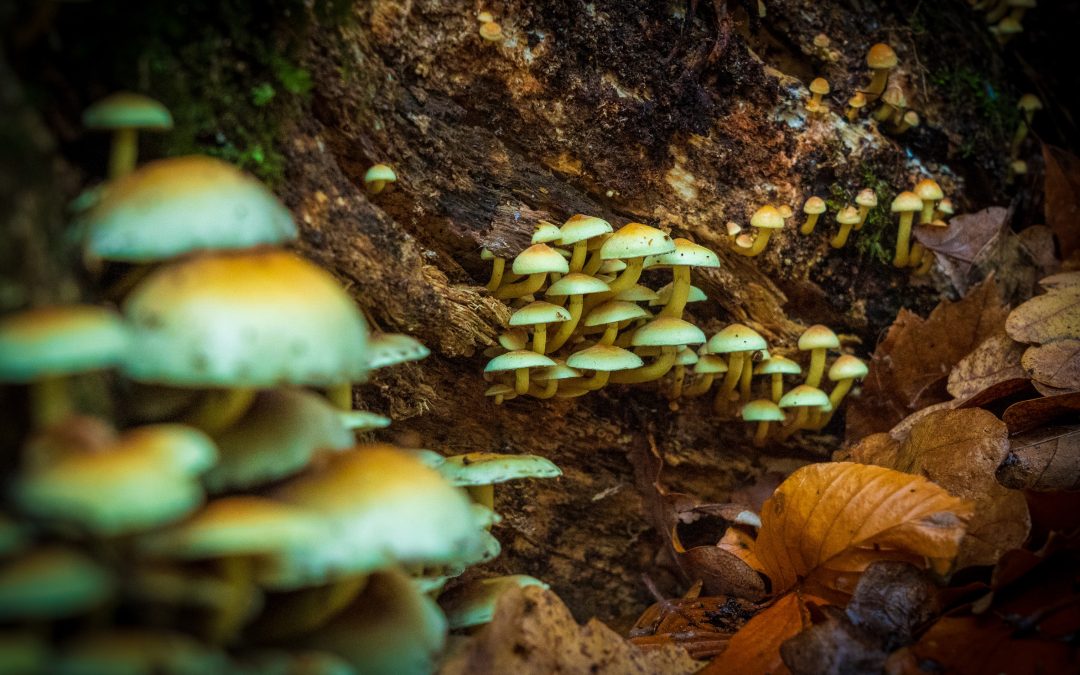What are “magic mushrooms”?
Magic mushrooms may be the next best fix for depression and addiction. Magic mushrooms are a type of wild mushroom that contains psilocybin. Psilocybin is a naturally occurring psychedelic compound produced by various types of fungus.
Typically when people think or hear about “magic mushrooms”, they think about the recreational use of this type of hallucinogenic drug. However, they might actually serve a functional purpose. A recent study conducted by King’s College in London just found that psychedelic mushrooms, or “magic mushrooms”, can be safely used to treat depression.
History of Use In Medical Treatment
While the British study shows promising results for the future of depression treatment, it is not the first time researchers and clinicians have looked into psilocybin’s effects. During the 1950s and 60s, psilocybin and LSD were widely studied as treatments for various disorders. By 1970, U.S. Congress passed the Controlled Substances Act, the statute establishing federal U.S. drug policy under which the manufacture, importation, possession, use, and distribution of certain substances is regulated. Due to this statute, psilocybin with several other psychedelic drugs such as LSD, were classified as having a high potential for abuse and no longer acceptable for medical use.
Since the termination of their use for medical purposes, many controlled clinical studies have taken place to examine the psychopharmacologic properties and therapeutic efficacy of these types of drugs. In turn, they have also started to highlight the positive effects drugs like psilocybin (“magic mushrooms” big component) have.
How Psilocybin Works
According to the study from King’s College in London, psilocybin helps “loosen” an individual’s patterns of thinking and behavior. Through this, the areas of the brain, which control these thinking processes and behaviors, are relaxed, making it easier for these patterns to either change or fade. To put it simply, psilocybin presumably has an effect on cognitive function. An individual’s cognitive function often is largely connected to their difficulties with disorders such as depression and addiction, which is why studies are currently attempting to prove a correlation between psilocybin and improvements on cognitive function.
Potential Benefits for Depression and Addiction
The King’s College Study, which focused solely on depression, found “no serious adverse effects” on emotional function among the study participants that took psilocybin, in comparison to those who received the placebo. The participants that took the psilocybin noted that they gained “new insights” with a changed perspective on their difficulties after coming off the psilocybin.
In a similar study done at the John Hopkins University School of Medicine, researchers found that two doses of psilocybin, given with supportive psychotherapy produced large and quick reductions in depressive symptoms. While this was a small study with only 24 participants, Alan Davis, a professor of psychiatry and behavioral sciences at John Hopkins, noted that the magnitude of the effect of this study was “about four times larger than what clinical trials have shown for traditional antidepressants on the market”.
In terms of addiction, due to psilocybin’s possible cognitive effects, researchers believe that the brain alteration caused by the compound will give individuals a more “top-down” level of control over their reward system. With addiction, the intense feelings of pleasure and reward from using certain substances often plays a substantial part in continual use. The hope is that with “magic mushrooms”, an individual will gain new control over their cravings and thinking processes that play a role in their addiction.
Where We’re Left Now
Despite the promising studies that are coming over regarding the benefits of “magic mushrooms” for the treatment of depression and addiction, more research, funding, and clinical trials are needed in order to prove their efficacy. In addition, it is important to note that psilocybin is only recognized as effective in these trials in combination with typical psychotherapy treatments.
While the benefits are encouraging, there are inevitable difficulties with this new drug treatment due to its illegality in the U.S. without special permission. Hopefully larger studies will surface soon, which will allow for better funding options to conduct further research.


